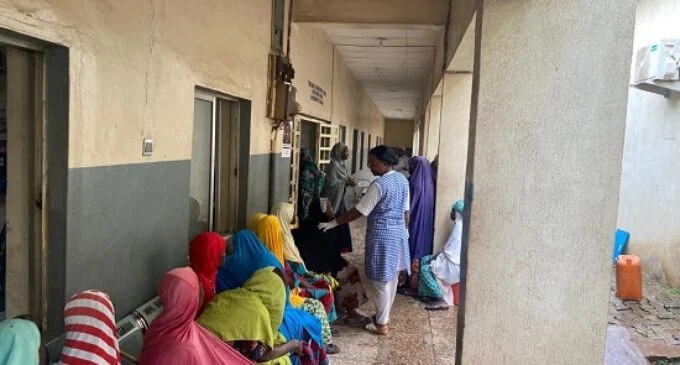Only 1.8% of PHCs in Nigeria have required skilled birth attendants – NPHCDA

The National Primary Health Care Development Agency has said only 1.8 percent of primary healthcare centres in Nigeria have the required skilled birth attendants.
Speaking at a briefing in Abuja on Wednesday, NPHCDA director general, Faisal Shuaib, said the agency set up the national emergency, maternal and child health intervention centre to provide oversight on maternal and newborn health in Nigeria.
Faisal said the agency also carried out a national health facility assessment in 2022 in a bid to close the gaps of inadequate distribution of human resources at the primary healthcare level.
“Findings from the assessment revealed that only 1.8% (463 out of 25,843) primary health care facilities in our country have the minimum number of required skilled birth attendants (SBA) which is four per facility. Aside from the gross inadequacy, there is the problem of unequal distribution of available SBAs in the PHC facilities,” he said.
He said the agency developed an innovation called community-based health research, innovative training and services program (CRISP) to address the inadequacy.
He said the CRISP will be launched on May 22 at the Banquet Hall of the State House.
“CRISP is a partnership between the teaching hospitals, federal medical centres, NPHCDA, state primary health care boards, local government health authorities and the communities to support primary health care development.
“The intervention specifically focuses on increasing, retaining and improving the quality, adequacy, competency, and distribution of a committed multidisciplinary primary health care workforce that includes facility outreach and community-based health workers supported through effective management supervision and appropriate compensation.
“CRISP aims to leverage the rural posting of resident doctors from teaching hospitals to boost and guarantee the quality of care at the PHC level through their active involvement in primary health service delivery. This is targeted at improving reproductive, maternal, newborn, child and adolescent health, amongst other health services within the benefiting communities.
“In addition, human resources for health (HRH), particularly skilled birth attendants, such as medical doctors, midwives, nurses, and community health extension workers (CHEWs) that have been trained on how to manage emergencies would be recruited and deployed to priority PHC facilities across the country,” he said.











